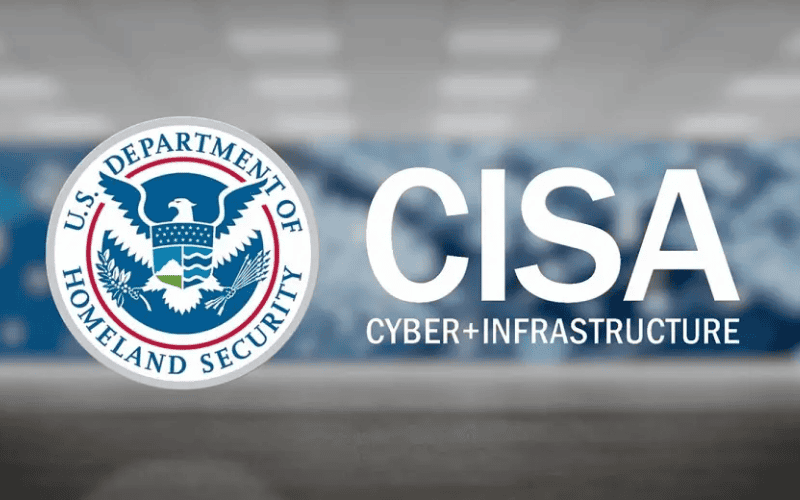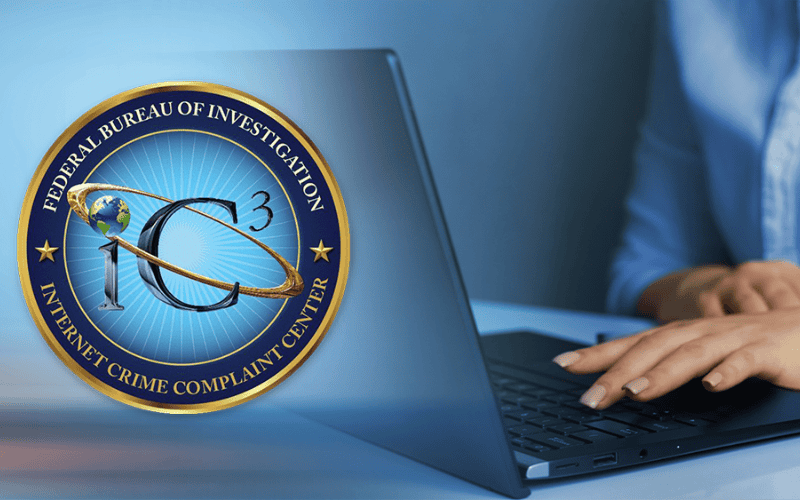This article will introduce how to report an online cyber attack, including the cyber security online complaints process, mention the responsible agencies and organizations, and provide helpful advice for the victims. This will be a valuable source of information, equipping each individual and organization with the necessary knowledge to counter the increasing risks of cyber security.
Introducing cyber security
Cyber security means defending computer systems, networks, and data against malicious attacks and unauthorized access. It involves various disciplines, including network security, application security, information security, operational security, disaster recovery, and end-user education.
Critical components of cyber security
- Network Security: This involves securing computer networks from intruders and malware by implementing firewalls, intrusion detection systems, and access controls.
- Application Security: This focuses on keeping software and devices free of threats by ensuring secure coding practices, testing, and validation.
- Information Security: This protects the integrity and privacy of data both in storage and transit by implementing encryption, access controls, and data backup systems.
- Operational Security includes the processes and decisions for handling and protecting data assets, such as user permissions and data storage procedures.
- Disaster Recovery and Business Continuity: This defines how an organization responds to a cyber-security incident or any other disaster by restoring operations and data to normal.
- End-User Education: This involves teaching users to follow good security practices, such as deleting suspicious email attachments and not plugging in unidentified USB drives, to prevent accidental security breaches.
Importance of cyber security
Cyber security is crucial for organizations to protect against financial and reputational losses due to data breaches and cyber-attacks. The global cyber threat continues to evolve rapidly, with a rising number of data breaches each year. Governments and regulatory bodies have responded with guidelines and frameworks to help organizations implement adequate cybersecurity measures.
Cyber security trends and challenges
- Rise of Gen V malware: Modern malware is swift, stealthy, and sophisticated, requiring cyber security solutions focused on prevention rather than detection.
- Cloud security: Securing cloud computing environments is a significant priority, as many cloud providers offer inadequate security solutions.
- Endpoint security: Securing end-user devices like desktops and laptops is critical to prevent attacks and data breaches.
- Mobile security: Mobile devices like smartphones and tablets can access corporate data and require specialized security measures to prevent attacks.
- Cybersecurity spending: Global spending on cybersecurity solutions is increasing, with predictions that it will reach $188.3 billion in 2023 and $260 billion by 2026.
Cyber security is a critical aspect of modern computing, requiring a comprehensive approach that includes network security, application security, information security, operational security, disaster recovery, and end-user education. The field is constantly evolving to address new threats and challenges, and organizations must stay up-to-date with the latest trends and best practices to protect their data and systems effectively.

How to report a cyber security online complaint
Reporting an online cyber attack is crucial for mitigating damage, holding perpetrators accountable, and preventing future attacks. Here’s a step-by-step guide on reporting an online cyber attack, including who to report to and what information you must provide. This guide will also cover the process for filing an online cyber security complaint, ensuring you know the appropriate channels and procedures to follow effectively.
- Reporting to the authorities
- Identify the proper authority: Depending on your country, specific government agencies are responsible for handling cyber attacks. For example, the Internet Crime Complaint Center (IC3) and the Cybersecurity and Infrastructure Security Agency (CISA) are vital resources in the United States. Other nations have similar regulatory bodies.
- Gather necessary information: Compile all relevant information about the attack, including timestamps, how you detected the attack, any information about the attacker (if known), and the type of attack.
- Submit a report: Visit the official website of the authority you’re reporting to and find their reporting mechanism—this could be an online form or an email address. Provide all the collected information and follow any additional instructions they may have.
- Notifying financial institutions
- Contact your bank immediately: If the cyber attack involves any financial theft or fraud, contact your bank or credit card company as soon as possible to report the incident. This can help prevent further unauthorized transactions and help recover any lost funds.
- Provide detailed information: Share as much detail as possible about the transaction and the cyber attack. Financial institutions often have specific forms or hotlines for such reports.
- Follow their guidance: Your bank or credit card issuer may have specific steps for you to follow after reporting the incident, such as changing your passwords or monitoring your accounts for unusual activity.
- Reporting to security companies
- Contact your cybersecurity provider: If you have a cybersecurity service provider or use specific security software, inform them of the attack. They can offer immediate support and advice on mitigating any damage.
- Provide logs and details: Security companies can better assist you if you provide detailed logs of the attack, including any known signatures or methods.
- Implement recommendations: Your security provider may recommend steps to secure your system after an attack. Implement these recommendations promptly to prevent future incidents.
General tips
- Act quickly: The sooner you report a cyber attack, the more effectively authorities and institutions can act to help you.
- Keep records: Document all communications and steps taken in response to the attack. This can be crucial for investigations and your records.
- Increase your security posture: Review and strengthen your cybersecurity measures using the incident. This could include updating software, changing passwords, and educating others about cybersecurity best practices.
Reporting an online cyber attack promptly and to the appropriate parties is essential for effective response and recovery. By following these steps, you can help protect yourself and potentially others from future attacks.

To whom should you report an online cyber security complaint?
When you’re the victim of an online cyber attack, determining the right organizations to report to is crucial for a proper response and to help prevent future incidents. Here are three key agencies in the United States where you can report cyber attacks, each with its specific focus and protocol. Additionally, filing a cyber security online complaint through these agencies can streamline the process, ensuring your case is addressed swiftly and effectively.
- Internet Crime Complaint Center (IC3)
- Focus: IC3 primarily deals with cybercrime. This includes everything from fraud and phishing scams to ransomware attacks.
- Who should report: Victims of any cybercrime, including individuals and businesses, should file a complaint here.
- How to report: You can file a complaint online through the IC3 website. Be prepared to provide details about the incident, your contact information, and any known information about the perpetrator.
- Federal Trade Commission (FTC)
- Focus: The FTC addresses identity theft and unfair business practices. While it does not resolve individual complaints, it uses the information to track patterns of fraud that may lead to investigations and prosecutions.
- Who should report: Victims of identity theft, scams related to online transactions, and other deceptive practices should report to the FTC.
- How to report: Complaints can be submitted online through the FTC Complaint Assistant or by calling the number provided on their website.
- Cybersecurity and Infrastructure Security Agency (CISA)
- Focus: CISA protects the nation’s critical infrastructure from cyber threats. This includes providing support for government entities and key private sector organizations.
- Who should report? While CISA is more focused on threats to critical infrastructure, it also provides resources and support for reporting general cyber threats.
- How to report: Reports can be made through the US-CERT (United States Computer Emergency Readiness Team) within CISA using their online form or email address for reporting cyber incidents.
Additional tips for reporting:
- Provide detailed information: When reporting, include as much detail as possible about the cyber attack. This may consist of emails, URLs, timestamps, incident descriptions, and any financial losses.
- Follow up: After submitting your report, record it and any correspondence. Follow up if you have additional information or if your situation changes.
- Protect your information: Even after a cyber attack, protect your personal and financial information, especially when communicating online.
Reporting to these agencies can help you get your support and contribute to broader efforts to combat cybercrime.

Advice for victims of online cyber attacks
If you’ve been a victim of an online cyber attack, taking immediate action can help mitigate the damage and secure your information. Here’s some advice to help you navigate the aftermath and protect yourself in the future:
- Change passwords
- Act quickly: Change all your passwords immediately, especially for compromised accounts and those that share similar passwords.
- Implement Robust Passwords: Generate solid and distinctive passwords for every account. You can use a passphrase or password manager to create and manage intricate passwords.
- Activate Multi-Factor Authentication (MFA): Where available, turn on MFA. This enhances security by demanding additional verification beyond just a password to access your account.
- Be cautious of phishing emails and scam calls
- Stay alert: Cyber attackers often follow up with phishing emails or scam calls. Be wary of any unexpected communications, especially those asking for personal information or urging you to click on links.
- Verify identity: If you receive a suspicious email or call from a company claiming to need your personal information, contact the company directly through a trusted number or email to verify the request.
- Educate yourself: Familiarize yourself with common phishing and scam call strategies to recognize and avoid them.
- Update software and operating systems
- Regular updates: Keep all your software and operating systems up to date. Cyber attackers use outdated software weaknesses to gain unauthorized entry into systems.
- Automatic updates: Where possible, enable automatic updates to ensure you’re always running the latest versions with the latest security patches.
- Secure your network: Make sure your home wi-fi is secure, and consider using a VPN, especially when connecting to public networks.
Additional steps
- Monitor your accounts: Review your financial and online accounts frequently for signs of unauthorized transactions. Consider configuring alerts for unusual activities.
- Backup crucial data: Make it a habit to regularly save your data to an external drive or a cloud service. This provides a secure data backup against ransomware attacks or potential data loss.
- Report the attack: Notify relevant authorities or organizations about the attack. This can help them take action against the attackers and prevent future attacks.
- Seek professional help: If the attack involves sensitive information or significant financial loss, consider consulting with cybersecurity professionals or legal advisors for specialized assistance.
By taking these steps, you can significantly improve your digital security and resilience against future cyber attacks.

Monitoring account activity after a cyber attack
Monitoring account activity following a cyber attack is crucial in regaining control of your digital life and ensuring your personal and financial information remains secure. Here are some strategies to effectively monitor your accounts after experiencing a cyber attack:
- Set up alerts
- Bank and credit card alerts: Most financial institutions allow you to set up alerts for various activities, such as transactions exceeding a certain amount or changes to account information. Activate these alerts to receive immediate notifications of any suspicious activity.
- Credit monitoring services: Consider signing up for a credit monitoring service that can alert you to alterations in your credit report, such as new accounts being opened in your name or significant fluctuations in your credit score.
- Regularly review account statements
- Check statements frequently: Don’t wait for monthly statements; regularly log in to your accounts to review recent transactions. Scrutinize all transactions, regardless of size, for any unfamiliar.
- Review credit card and bank statements: Review your bank and credit card statements meticulously. Unauthorized transactions or withdrawals could be signs of identity theft or fraudulent use of your account information.
- Monitor your credit report
- Free annual credit reports: You’re entitled to one free credit report per year from each central credit reporting agency (Experian, TransUnion, and Equifax). Use these reports to check for unauthorized accounts or inquiries. This is another step in cyber security online complaint filing.
- Consider a credit freeze: Consider subscribing to a credit monitoring service that alerts you to changes in your credit report, such as new accounts opened in your name or significant changes to your credit score. This is a form of cyber security online complaint management.
- Change and strengthen passwords
- Update passwords: Change passwords for all your important accounts, starting with financial and email accounts. Create strong and unique passwords for each account, and consider employing a password manager to manage them efficiently.
- Enable two-factor authentication (2FA): Where available, enable 2FA on your accounts. This adds a layer of security by requiring a second verification form to log in.
- Be vigilant about phishing attempts
- Expect increased phishing attempts: After a cyber-attack, you might be targeted with phishing emails or calls. Be extremely cautious about unsolicited requests for personal information or requests to click on links or download attachments.
- Seek professional help if needed
- Consider professional monitoring: If the attack is severe or you feel overwhelmed, consider hiring professionals specializing in post-attack tracking and recovery. They can offer tailored guidance and assist you through the recovery process.
- Report suspicious activities
- Notify authorities and financial institutions: If you detect new suspicious activities, immediately report them to the appropriate authorities and your financial institutions. Prompt reporting is an essential part of cyber security online complaint procedures. This can help mitigate potential damages and recover lost funds more quickly.
Monitoring your accounts diligently after a cyber attack can help you catch and address any additional unauthorized activities early on, significantly reducing the potential impact on your financial health and personal security.

Cybersecurity online complaints are a crucial part of combating cybercrime. Reporting these incidents can help safeguard yourself and others. Through this article, we hope you gain more knowledge on handling situations when you’re the victim of a cyber attack. For more related information, visit the Proxy Rotating website at Proxy Rotating to explore it now!
>>> See more:
A cyber security incident can be reported by
Cyber security basics for beginners
Cyber security roles and responsibilities
